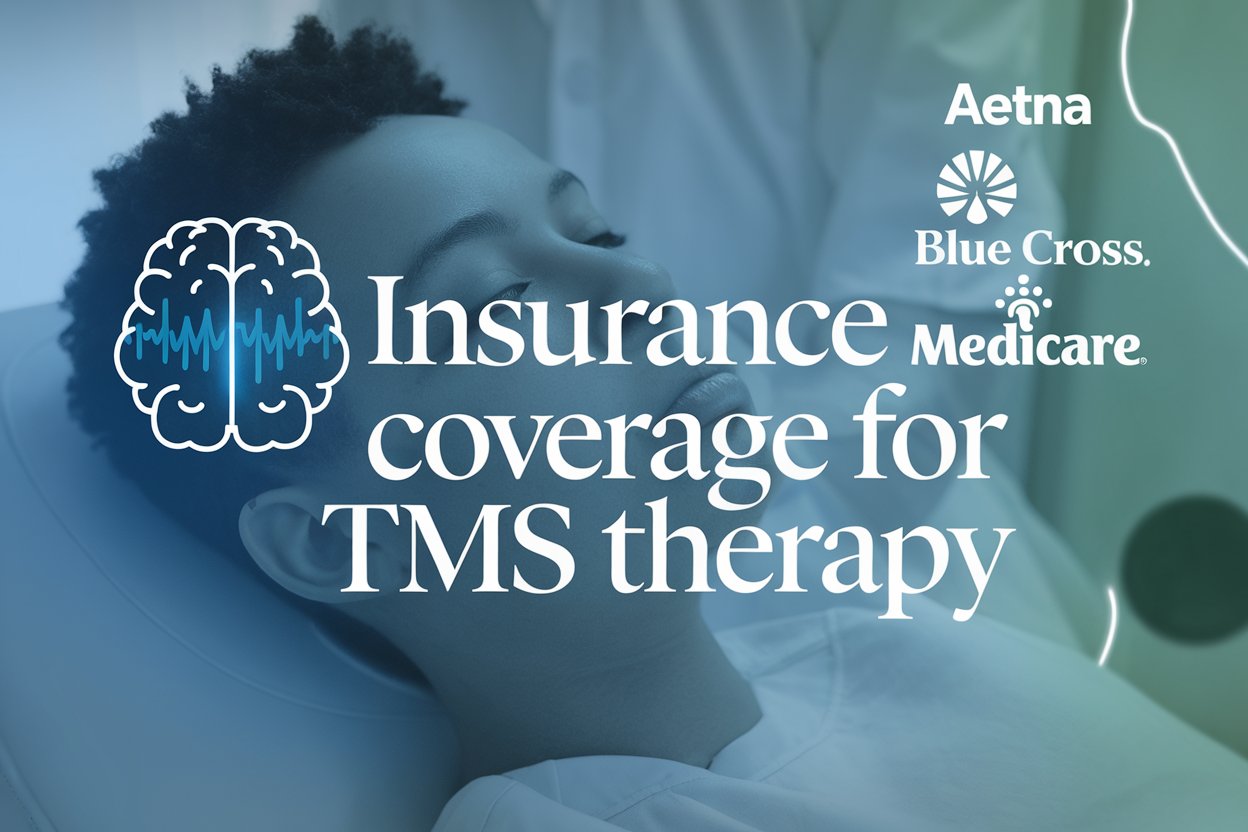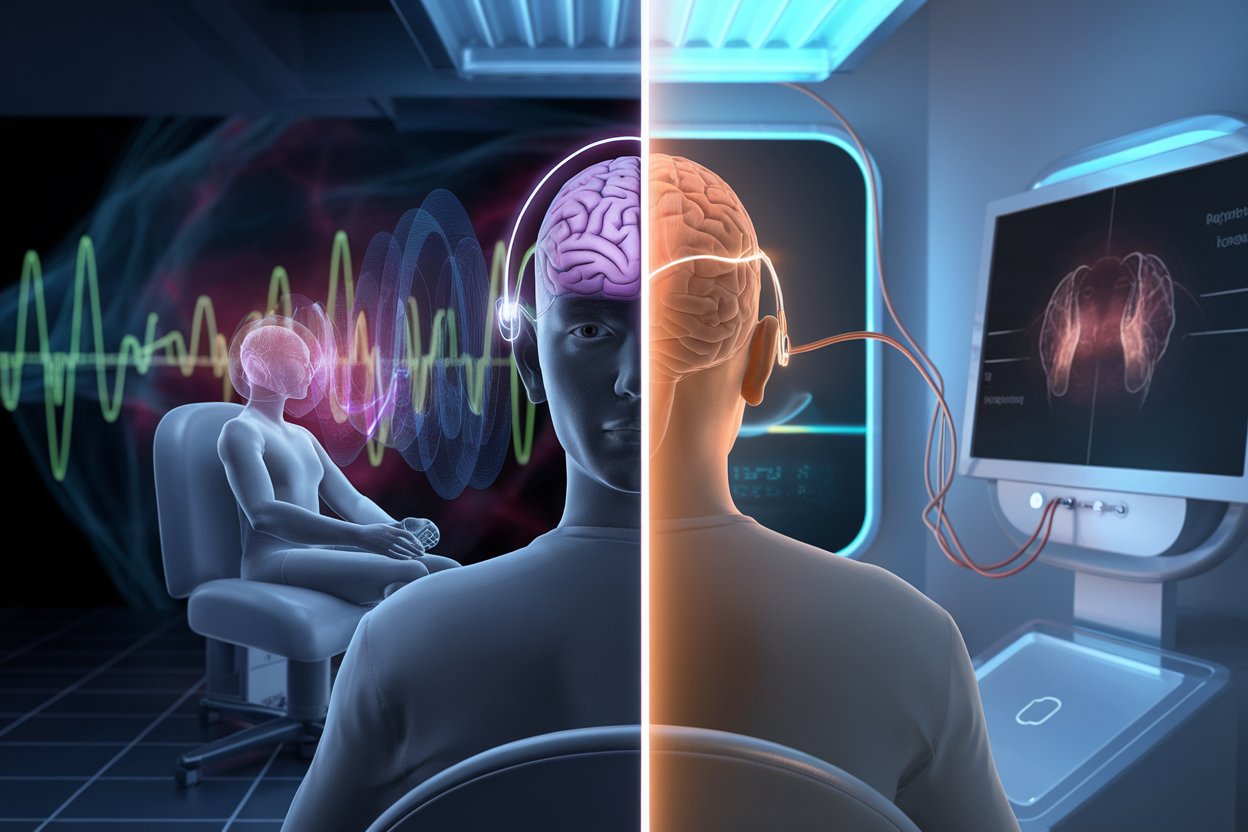It can be scary to hear someone say, “TMS ruined my life.” This phrase caught your attention and might make you wonder if Transcranial Magnetic Stimulation (TMS) therapy is safe and even works. But let’s go on an adventure together to find out what TMS therapy is really about, how neuroplasticity works, and how this new treatment is making people’s lives better.
Understanding TMS Therapy and Neuroplasticity
When other treatments haven’t helped people who are dealing with severe depression or anxiety, TMS therapy is a new and innovative way to help them feel better. To use the brain’s natural ability to change, which is called neuroplasticity, TMS therapy is essentially about hope and change.
Neuroplasticity: The Brain’s Marvelous Flexibility
Neuroplasticity is the power of your brain to change and adapt as you go through life. This means that your brain can make new links and pathways. TMS therapy uses this ability to help heal and improve mental health.
The Benefits of TMS Therapy: A New Dawn
Even though you may have heard disturbing statements like “TMS therapy ruined my life,” it’s crucial to highlight the many encouraging testimonies and scientific proof that TMS therapy works:
- Harnessing Change for Good: TMS promotes growth and connection by activating particular brain regions, which enhances mood and cognitive performance.
- A Ray of Hope: Because it helps people find joy and peace again after feeling lost in the darkness of depression and anxiety, TMS has been a lighthouse for many.
- Beyond the Fog: TMS doesn’t make you feel sleepy or cloud your judgment like some medicines do. It’s a treatment that helps you stay focused and aware on your path to health.
Addressing Concerns and Fears: “What If TMS Therapy Changes Me?”
It might sound scary to think about changing your brain. “What if I’m never the same?” is a worry that many people who are thinking about TMS therapy have. You have a good reason to feel that way—fear of the unknown. But here’s what you should know:
- Change for the Better: The goal of TMS therapy is to help your brain make better connections and patterns. You won’t change who you are at your core; it’s just about getting you back to your best self.
- Safety and Support: TMS has been approved by health officials and has strong research support. Also, you’re not going through this journey by yourself; there are experts who will help you every step of the way.
FAQs About TMS Therapy
1. How does TMS therapy work?
Magnetic fields are used in TMS therapy to gently stimulate parts of the brain that control mood. This helps bring about positive changes and healing.
2. I’ve heard someone say, “TMS therapy ruined my life.” Should I be worried?
It can be scary to hear this, especially when you are thinking about starting a new treatment. It’s important to keep in mind that everyone has a different experience with medical treatment, even TMS therapy. Some people may have problems, but a huge number of people have found relief and improvement in their symptoms. It’s important to look at these kinds of statements with a balanced mind and get your information from dependable sources.
3. Will I feel like a different person?
You’ll stay the same. We want you to feel better, more like yourself, before the sadness or anxiety set in. We want you to be happier, calmer, and more like yourself.
4. Is TMS therapy safe?
Yes, it is a legal and safe treatment that has helped a lot of people in the past. Most of the time, a side effect is temporary pain at the treatment site.
5. How long does it take to see results?
People get different results, but within a few days of starting treatment, a lot of them start to feel better about their mood and outlook.
6. Who should avoid TMS treatment?
Although TMS therapy is very open to everyone, it was made with safety and effectiveness in mind. People who have dental fillings or certain types of medical implants that can’t be taken out or metal that can’t be removed in or near the head should talk to their doctor carefully to make sure they are a good candidate. These steps make sure that everyone who gets TMS does so safely and with the goal of getting the best results.
7. What is the controversy with TMS?
A lot of the talk about TMS is about how it treats mental health problems in new and different ways. Though TMS is a relatively new treatment compared to older ones, it has caused doctors and patients to talk about what it is for and how well it works. However, ongoing research and clinical studies continue to show that it works and is safe, making it more widely accepted and used as a useful tool in mental health care.
8. What is the negative impact of TMS?
TMS is known for having few side effects, especially when compared to treatments that use drugs. Some people may temporarily feel pain at the treatment site or get mild headaches, but these side effects usually don’t last long and are easy to deal with by making small changes to the treatment parameters. Because TMS has a low risk of side effects, it is appealing to many people who are looking for alternatives to traditional treatments.
9. Can TMS cause personality changes?
The idea that TMS therapy can change a person’s personality has not been proven. The goal of TMS is not to cure mental health problems but to ease their symptoms. This may directly cause positive changes in mood, outlook, and behavior. Patients often say they feel more like themselves as they get better from their conditions, which is in line with the goal of the therapy to improve quality of life and restore well-being.
Embracing the Journey: Contact American TMS Clinics
You may have had doubts after reading, “TMS therapy ruined my life.” But remember that there’s a lot more to the story. Neuroplasticity is the idea behind TMS therapy. It is a way to heal that is based on the brain’s amazing ability to change and adapt.
Ready to learn more or take the first step towards healing?
Contact American TMS Clinics. Our team is dedicated to guiding you through the positives of TMS therapy, addressing your concerns, and supporting you on your journey to a brighter, healthier future.





